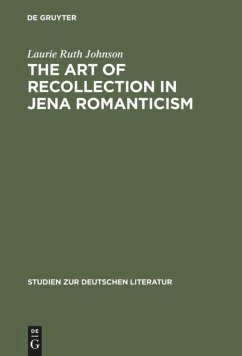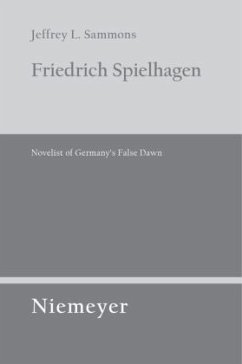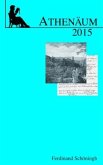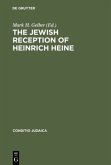This exploration of Romantic depictions of memory as a faculty of body as well as of mind analyzes representations of remembrance in Jena Romantic texts. When these texts pose questions about memory's employment and depiction in art - about the aestheticization of recollection - they reveal serious doubt about the explanatory ability of the philosophical, psychological and aesthetic discourses against which Romantic, and modern, thought is constructed.
This study examines the ways in which memory is understood and aestheticized in Romantic texts, and argues that these works reveal serious doubt about the explanatory ability of the philosophical, psychological and aesthetic discourses against which modern thought is constructed.
The Jena Romantics represent the experience and presentation of memory as privileged and creative, but also as not always capable of giving reliable information about the actual past. But rather than depicting signifiers with no stable referents, their portrayal of memory and remembering as creative displays a belief that meaning is accessible through its representations. This belief results in an emphasis on originality over imitation, but also blurs distinctions between memory and historiography. The form of the fragment embodies the dilemmas and possibilities that the Romantics associate with memory.
The book includes a survey of theories of memory and how they contribute to a specifically Romantic model for memory that can lead to new interpretations of Romantic fragments; chapters on eighteenth-century aesthetic and psychological theories of memory that precede and influence Romantic texts, and on understandings of memory in critical and idealist philosophy; interpretations of the poetic and philosophical production of Novalis and Friedrich Schlegel; and a conclusion that demonstrates the persistence of the Romantic model for memory in contemporary memory theory and cultural production.
This study examines the ways in which memory is understood and aestheticized in Romantic texts, and argues that these works reveal serious doubt about the explanatory ability of the philosophical, psychological and aesthetic discourses against which modern thought is constructed.
The Jena Romantics represent the experience and presentation of memory as privileged and creative, but also as not always capable of giving reliable information about the actual past. But rather than depicting signifiers with no stable referents, their portrayal of memory and remembering as creative displays a belief that meaning is accessible through its representations. This belief results in an emphasis on originality over imitation, but also blurs distinctions between memory and historiography. The form of the fragment embodies the dilemmas and possibilities that the Romantics associate with memory.
The book includes a survey of theories of memory and how they contribute to a specifically Romantic model for memory that can lead to new interpretations of Romantic fragments; chapters on eighteenth-century aesthetic and psychological theories of memory that precede and influence Romantic texts, and on understandings of memory in critical and idealist philosophy; interpretations of the poetic and philosophical production of Novalis and Friedrich Schlegel; and a conclusion that demonstrates the persistence of the Romantic model for memory in contemporary memory theory and cultural production.








